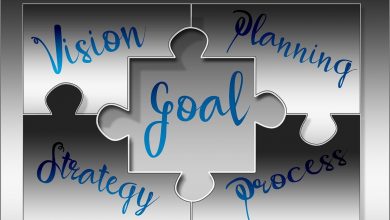How To Manage Your Budget?
Learn to Manage Your Budget like a Pro

Super Easy Ways to Managing Your Budget
Money may not be enough to buy happiness, but it does have a sense of comfort. You may still feel like your life is one step away from a financial cliff if you don’t get a grip on money management, that’s why it’s important to discuss the topic of ” How to manage your budget? “
Life does not get better because you handle your money well, but you may have more time to spend on the important things of your life. Fortunately, getting the money in order is not impossible.
Let’s take a look at how to properly handle the finances.
1. Set Up The Proper Bank Account
Your financial success depends on getting the right bank accounts. Trying to handle your money without the appropriate bank accounts is akin to trying to maintain your vehicle without the required components.
You’ll need to open a bank account, a savings account, and an investment account. They are the foundations of financial prosperity.
It’s important to open both a checking and a savings account so that you can quickly distinguish between short-term spending and long-term savings. Leaving your savings in your bank account makes it way too easy to waste your hard-earned money without noticing it.
Take a look at the financial condition right now.
While it could be frightening, you may not be able to change your financial condition until you assess your current situation.
If you have some unpaid loans or heavy bills that are affecting your economy, be painfully frank with yourself. Rejoice in your wise investment decisions. Have a list of everything so you can see the big picture.
2. Get A Financial Strategy
It’s really quick to run out of money if you don’t have a strategy. After all, the logic behind “treat yourself” is simple to accept. You may be unhappy with your savings if you say yes to so many needless expenditures.
Take the time to create a budget to counteract this.
Have a plan for how you’ll spend your money. Consider your long-term spending targets in addition to your current expenditures. You should also find a budgeting approach that fits your needs.
3. Set Financial Objectives
Think where you want to be financially in the future. There is no right or wrong response, so you should think about your plans and how money can affect them.
Make straightforward and specific financial targets until you’ve figured out how the money would fit into your life.
4. Every Day, Check In On Your Finances
You can’t go on until you know where you are. Every day, set aside five minutes to review your budget.
If you have a habit of overspending? Are you on the right track? It’s crucial to understand.
It can appear boring to review your financial condition on a daily basis. It does not, though, have to take a long time. Use an app or a spreadsheet to easily assess your financial situation and get back to living your life.
5. Manage Your Expenses
Look at costs you should exclude from your monthly schedule. Also removing a $20 needless cost from your budget will result in a year-end savings of $240.Job lunches, a box order, or the tv service are just a few easy items to leave out.
6. Take A Look At Your Income
This may sound self-evident, but it is critical to know precisely how much money you make. Take a moment to calculate your net revenue, not just your gross income. You’ll be more able to accurately budget with this number. If you are disgusted with your total income, then try choosing up a side hustle.
A profitable work from home side hustle will blend into your life and help you boost your finances significantly. Negotiating your pay is another way to increase your earnings.
Don’t be afraid to provide your boss with evidence to back up your demands for a boost. You never know what they’ll come up with.
7. Begin Repaying Your Debts.
Debt is a major source of financial stress. It has an effect on not just your present spending, but also your projected savings.
Take your loan seriously and make paying it off a top priority. Consider various debt repayment plans and choose the one that best suits your needs.
Don’t let debt get in the way of your other financial objectives, make a plan to deal with it right now.
Here you’ll find over 200.000 happy people who found debt relief
8. Acknowledge Your Credit Score.
Your credit score is a three-digit figure that has a significant influence on your financial situation. Lenders are more likely to give borrowers with excellent credit terms and reduced interest rates.
A minor interest rate cut when applying for big loans, such as a mortgage, will save you thousands of dollars.
Boost your credit score by taking steps. Start by pulling your credit report to look at any flaws, and then use a credit management program to avoid making any more mistakes in the future.
Having on-time payments and keeping your loan usage rate down are two more ways to increase your credit score.
9. Make A Budget For Major Expenditures.
While certain bills are unpredictably volatile, you should prepare for others months ahead of time.
For one, you could be required to pay for premiums all at once, which may cost thousands of dollars. Establish a sinking fund instead of trying to come up with the funds for the payment.
You should set aside a portion of each paycheck for these large bills to ensure that you have enough money to afford them. This is where having a budget comes in handy.
You’ll be able to incorporate this sunk fund into the spending and never have to think about unexpected costs again.
Check My Private Library For Business And Earn More By Working Smarter
…
Would You Like To Become Financially Independent or To Get Back On The Right Track Of Your Life And Claim Your Freedom?
Below Are The Safest And The Most Efficient Tools!
- Be Part Of The World’s Leading Experts And Find Success
- Master Your Profession, Your Passion, Or Something New
- Start Your Own Business For Free
- Become Debt Free (Free consultation)
- Make An Income By Teaching And Traveling The World
Other Important Resources
- Improve Your Life Today (Book)
- IG: Personal / Eagle Beagle Spirit
- Visit Our Shop or Become An Ambassador
Always fighting for your rights and your daily improvement,
Juan Plamen




